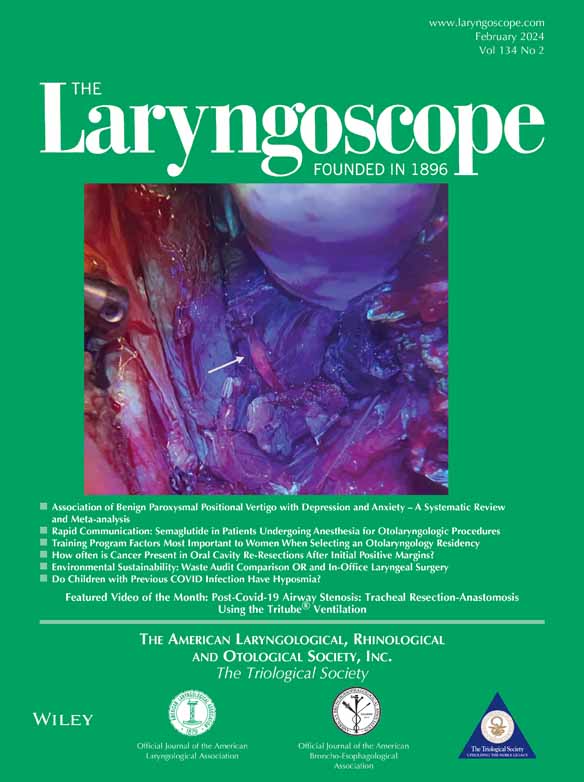Management of Idiopathic Vocal Process Granuloma: A Survey of Academic Laryngologists
Claire Boyce and Kelly L. Schmidt contributed equally to this work.
This study was presented at the American Laryngological Association Meeting at the Combined Otolaryngology Spring Meetings, Boston, MA, on May 5–7, 2023. Poster D034.
The authors have no funding, financial relationships, or conflicts of interest to disclose.
Abstract
Objectives
Vocal process granulomas (VPGs) are benign laryngeal lesions that may manifest as ulcerated regions of the vocal fold or nodular polypoid lesions. Gold standard treatments for idiopathic VPG are yet to be established at this time. This study evaluated clinical decision-making and outcomes in the treatment of VPG patients based on experiences of academic laryngologists across the United States.
Methods
A 21-question survey was developed to evaluate each respondent's specific VPG patient population, clinical decision-making in treating VPG, and corresponding treatment outcomes. The survey was distributed to 168 laryngologists at academic institutions across the United States. Data were analyzed through the Qualtrics platform.
Results
A total of 106 responses were analyzed, with a completion rate of 63.1%. Etiology of VPG was most commonly attributed to phonotrauma (96.2%) and reflux (71.8%). Primary first-line treatment was most commonly antireflux medications (92%). Other common first line treatments included voice therapy (58.8%) and inhaled steroids (42.5%). With these treatments, the majority of laryngologists report that recurrence is uncommon (68.4%). Dysphonia was cited as the most frequent long-term sequelae at 27.8%.
Conclusions
VPG treatment strategies continue to be controversial across the United States with many treatments described in the literature with variable application in the practice of academic laryngologists today. Based on survey results, antireflux medications and voice therapy may be the most widely used and most effective treatment options. Establishment of gold standard therapy for VPG as well as further research into recurrent or persistent VPG despite antireflux and voice therapy should be explored.
Level of Evidence
5 Laryngoscope, 134:795–802, 2024




